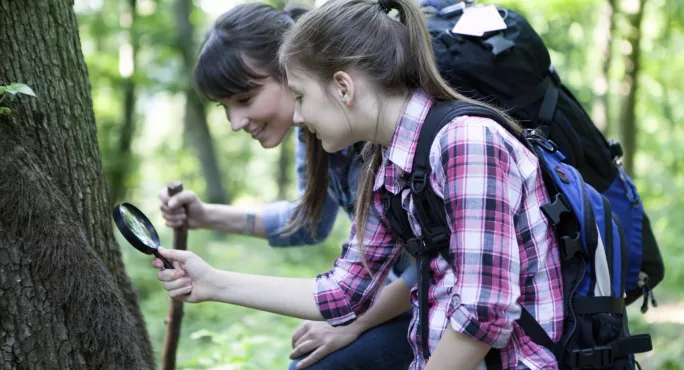Arkengarthdale is a beautiful part of North Yorkshire - the most northerly of the Yorkshire Dales, starting at Reeth and passing through the villages of Whaw, Booze and Langthwaite (which you may recognise as the village in the opening of each episode of the BBC series of James Herriot’s All Creatures Great and Small), before culminating at the Tan Hill Inn, the highest pub in England. The dale is sparsely populated by people, but has plenty of sheep and grouse. The remains of a thriving lead mining industry are much in evidence.
It’s a wonderful place and there are many opportunities in Arkengarthdale to learn about history, geography and science, as well as testing stamina walking over the often boggy ground. I recall a group from Bede School (closed in 1991) in Sunderland, where I taught, visiting Arkengarthdale, no doubt noting on the way through Richmond that that was where the Bede girls had been evacuated to at the outbreak of the Second World War. But when they arrived in Arkengarthdale, these teenagers from Sunderland housing estates were scared and stuck close to the teacher. They had never seen such remoteness.
In another Sunderland school where I taught, the children all lived north of the river Wear and some had never been into the city centre, which is on the south side.
Teachers should never underestimate the narrowness of the lives of some of their pupils.
There is a lovely page on the National Trust website entitled 50 things to do before you’re 11¾. It is part of the National Trust’s campaign to get children to engage more with the countryside and most of the 50 things are rural activities - roll down a big hill, visit a farm, track wild animals, for example.
Disadvantaged 11-year-olds will have done many fewer of the activities than their better-off peers - and that is the way it will remain for these young people unless schools make additional opportunities available to them, either through extra-curricular activities or through focused financially-supported visits.
Many schools that know about the National Trust list do not use it in its entirety but, taking the same idea, have adapted it to the specific context of their pupils. Many primary and secondary schools have created their own list of 30, 40 or 50 things, and one secondary I know has taken the idea further and produced a list of 100 things to do before 13¾, including going to the theatre, visiting the seaside, exploring the local library, and much more. The school ensures that it makes opportunities available to all pupils to do the 100 things, funding disadvantaged students with pupil premium where necessary.
Equity is not the same as equality. It means schools doing more for some children than others in order to create a more level playing field. Recognising that some children have a very narrow experience outside school and providing them with additional opportunities is an important step in ensuring that they can make the most of their educational opportunities.
Whether it is through visiting the wide open spaces of Arkengarthdale or looking around the local library, there is much in this approach that will help all children to maximise their educational opportunities. Make this one of your professional new year’s resolutions for 2016.
Happy new year!
John Dunford is chair of Whole Education, a former secondary head, general secretary of the Association of School and College Leaders and national pupil premium champion
Want to keep up with the latest education news and opinion? Follow TES on Twitter and like TES on Facebook




